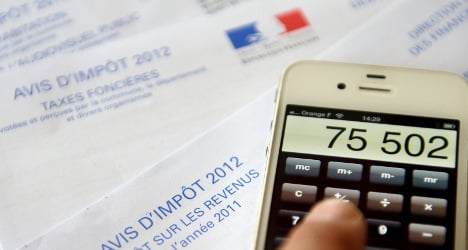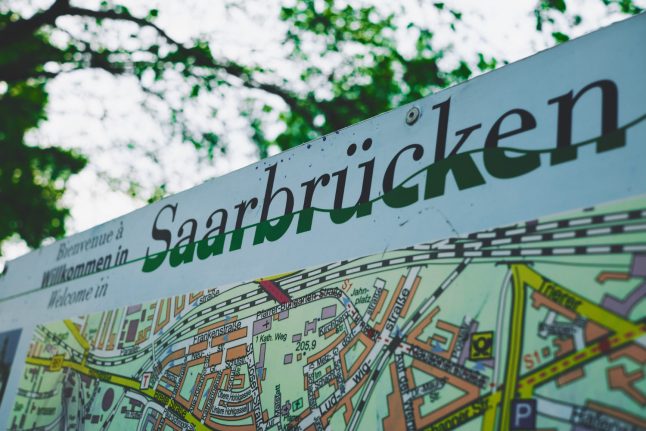Have the famously tax tolerant French public finally had enough?
Some 72 percent of them feel they now pay too much in taxes, according to a new poll by Ipsos, published in French daily Le Monde on Monday.
The French have long accepted the principle of paying high taxes in return for top quality public services but with more than seven out of ten French tax payers of the view they are being hit too hard in the pocket, perhaps the traditional view is changing.
Monday's survey comes not long after France announced its 2014 budget which included more tax hikes.
Although 57 percent of those surveyed said they saw paying taxes as part of the role of being a French citizen , it meant almost half (43 percent) felt it "wasn’t really", or "wasn’t at all" an "act of citizenship".
In an analysis article last month titled "Why do the French Tolerate Such high Taxes", The Economist magazine suggested "the social contract", between the French and the state, "could be on the verge of breaking down".
"Over the past year, as taxes on beer and cigarettes have risen, tax-free overtime abolished, tax deductions squeezed and tax-band thresholds frozen, even the French have started to grumble," The Economist noted.
To add to the evidence that the French have reached tipping point 74 percent of respondents thought they weren’t gaining enough benefit from the complicated French welfare system funded by their tax and social charges contributions.
“In other words,” the Ipsos survey concluded, “the French people see themselves paying taxes, but they don’t feel they get enough back in return.”
SEE ALSO: French Budget 2014 – How are you affected?
French taxes have 'crossed the red line'
The survey comes on the same day that Frenchman Michel Barnier, European Commissioner for Internal Market and Services, slammed the French tax system, in remarks prepared for an address to the National Assembly.
“We have crossed the red line. There is too much tax in France, with results that don’t always match it,” said Barnier.
“Public spending in our country has now reached 57 percent of GDP – that’s 12 percentage points higher than in Germany,” he added.
The European Commission is due in November to render a ruling on each EU member state’s budget.
Barnier isn’t the first senior EU official to condemn France’s increased taxes in recent months. In August, The Local reported how European Commission Vice-president Ollie Rehn warned French taxes had reached a “critical level.”
“Introducing new taxes could have the effect of stemming any growth and impact heavily on unemployment figures,” Rehn told French weekly newspaper Le Journal Du Dimanche at the time.
“Budgetary discipline must begin with a cut in public spending,” he added.
In response Eric Heyer, from the French Economic Observatory told The Local: “It’s ridiculous to say France’s tax rises have reached a ‘critical level’. There’s no study or report that has been carried out to back-up what he says.
“France’s taxes are high and it might not be best idea to raise them at this moment of time, but to suggest they have reached a critical level is wrong,” Heyer said.
“Suggesting it will be a catastrophe if France introduces more tax hikes is just not true.In September, French Finance Minister Pierre Moscovici said that the forthcoming budget would bring France's 2013 public deficit to 4.1 percent of GDP, higher than the 3.9 percent previously agreed with the European Union.
Moscovici said the 2014 deficit will come in at 3.6 percent and that France plans to push it back under the EU ceiling of 3.0 percent of GDP in 2015, which is the agreed deadline with Brussels.
In May, the European Commission gave France an additional two years to bring its public deficit back under the EU ceiling.
Don't miss a story about France – Join us on Facebook and Twitter








 Please whitelist us to continue reading.
Please whitelist us to continue reading.
Member comments